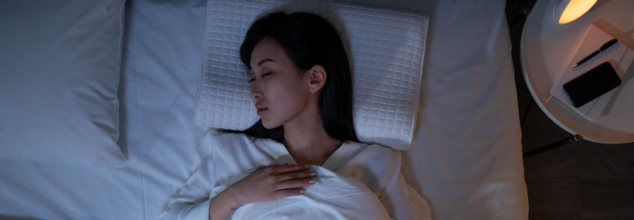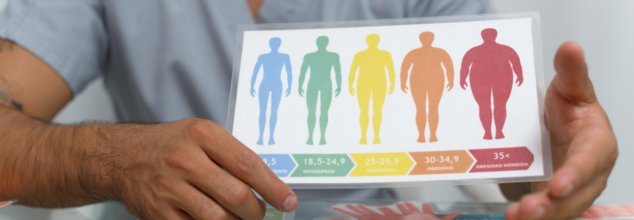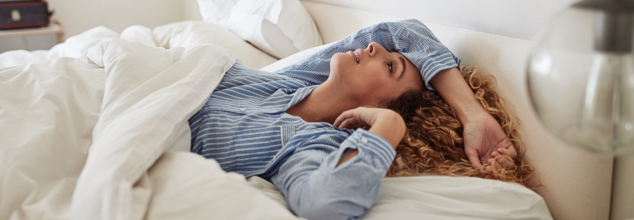- Health Conditions A-Z
- Health & Wellness
- Nutrition
- Fitness
- Health News
- Ayurveda
- Videos
- Medicine A-Z
- Parenting
- Web Stories
Stroke Survivors Face Increased Sleep Challenges- Tips To Improve Sleeping Pattern

Sleep plays a vital role in maintaining brain and heart health, but for people who have suffered a stroke, getting the right amount of rest may be a challenge. A recent study published in Neurology, the medical journal of the American Academy of Neurology, sheds light on the relationship between stroke and sleep abnormalities.
It reveals that stroke survivors are more likely to experience irregular sleep patterns, either getting too much or too little sleep compared to individuals without a history of stroke. While the study does not conclusively prove that stroke causes sleep disturbances, the correlation is significant and points to the importance of addressing sleep as part of post-stroke care.
The research involved 39,559 participants, of which 1,572 had experienced a stroke, while 37,987 had not. Over the course of the study, participants were asked every two years about their sleep duration on workdays or weekdays. The responses were divided into three categories:
- Short sleep: Less than six hours
- Normal sleep: Six to eight hours
- Long sleep: More than eight hours
One of the key findings was that normal sleep duration (six to eight hours per night) was less common among stroke survivors across all age groups:
- Among people aged 18-44, only 32% of stroke survivors reported normal sleep, compared to 54% of those without stroke.
- In the 45-64 age group, 47% of stroke survivors had normal sleep, compared to 55% of non-stroke individuals.
- For those over 65, 45% of stroke survivors had normal sleep, while 54% of non-stroke individuals reported the same.
These numbers suggest a clear difference in sleep patterns between stroke survivors and those without stroke, with stroke survivors being more likely to experience sleep problems.
Sleep Patterns in Stroke Survivors
The study revealed that people who had suffered a stroke were 54% more likely to sleep more than eight hours per night and 50% more likely to sleep less than six hours compared to people who had not experienced a stroke. This suggests that abnormal sleep—either too much or too little—may be common in stroke patients.Dr. Sara Hassani, the lead author of the study from Duke University School of Medicine, highlighted that "sleeping the right amount is considered essential for ideal brain and heart health." She further noted that abnormal sleep patterns could affect stroke recovery and quality of life, stressing the need to screen for sleep issues in stroke survivors.
Stroke and Sleep Disorders
Abnormal sleep patterns in stroke survivors are not a new discovery. Previous research has linked stroke to sleep apnea, a condition where breathing repeatedly stops and starts during sleep. Insomnia and excessive sleepiness are also common in stroke patients, potentially as a direct or indirect consequence of the stroke itself. Understanding the precise relationship between stroke and sleep is complex, and further research is needed to determine how sleep duration impacts long-term recovery outcomes.One limitation of the current study is that the participants self-reported their sleep duration, which could lead to inaccuracies. However, the association between stroke and irregular sleep patterns is consistent enough to warrant concern.
Importance of Sleep for Recovery and Well-being
Getting the right amount of sleep is crucial for everyone, but it is especially important for stroke survivors. Both insufficient and excessive sleep have been linked to poor recovery outcomes and reduced quality of life after a stroke. According to Dr. Hassani, "Future research should explore the links between stroke and duration of sleep and determine the effect of sleep duration on outcomes after stroke."
Tips for Improving Sleep Quality
Whether you're recovering from a stroke or simply trying to improve your overall health, good sleep hygiene is essential. Here are some practical tips for getting a good night’s rest:1. Try to go to bed and wake up at the same time every day, even on weekends. This helps regulate your body's internal clock.
2. While naps can be tempting, especially if you're feeling fatigued, they can interfere with nighttime sleep. If you must nap, limit it to 20-30 minutes and avoid napping late in the day.
3. Activities like reading, meditation, or listening to calming music can help signal to your body that it's time to wind down.
4. Avoid using smartphones, tablets, or watching TV right before bed, as the blue light emitted can disrupt your sleep cycle.
5. Make sure your bedroom is cool, dark, and quiet. Comfortable bedding and the right mattress can also make a big difference.
6. Physical activity during the day can help you fall asleep more easily at night, but try to avoid vigorous exercise close to bedtime.
7. Practice relaxation techniques like deep breathing or progressive muscle relaxation to help calm your mind before bed.
8. Both caffeine and alcohol can interfere with your sleep, so try to avoid them in the hours leading up to bedtime.
Sleep is a vital part of maintaining both mental and physical health, particularly for stroke survivors. Whether you have had a stroke or are simply looking to improve your health, prioritizing sleep should be a key component of your daily routine.
BMI Calculators Cannot Predict Your Risk Of Death - Which Metric Can We Use?

(Credit-Canva)
Health is not linear for everyone. Many people have skewed perception about health; they think a person who is thin is naturally healthy, while a person who is overweight is inherently unhealthy.
A recent study published in the Annals of Family Medicine suggests that BMI, a measure of body fat based on height and weight, is a poor predictor of a person's risk of death. Instead, the study highlights body fat percentage (BF%) as a more effective and easily assessed measurement during routine checkups.
Shortcomings of BMI
Doctors have traditionally used BMI to check a person's fat, bone, and muscle health, especially since body composition is linked to a higher risk of conditions like type 2 diabetes and heart disease. BMI is calculated by dividing a person's weight by their height squared.
While a higher BMI can sometimes suggest a greater chance of developing certain health problems, there's growing evidence that it's an imperfect measure. It doesn't consider important factors like a person's age, biological sex, or how their fat and muscle are distributed.
For example, top athletes often have a lot of muscle, which can give them a high BMI. Even though these athletes are very healthy, focusing only on their BMI might incorrectly label them as having obesity.
On the other hand, some people with a "normal" BMI might still be at a higher risk for conditions like diabetes, high blood pressure, and fatty liver disease. These individuals are sometimes referred to as having "normal weight obesity" or, in simpler terms, being "skinny fat."
Why Body Fat Percentage Might Be Superior
With the limitations of BMI in mind, researchers looked into how strongly BMI is connected to the risk of death. They also wanted to see if body fat percentage, which they described as "an easy, reliable, and inexpensive measure," could do a better job of predicting this risk.
The research team analyzed health information from thousands of adults. This data included height, weight, waist size, and body fat percentage. They calculated BMI for these individuals and then tracked who passed away over many years. After considering various factors, the scientists made some key discoveries:
There was no significant link between having a BMI categorized as obese (meaning a BMI of 25 or higher) and a greater risk of dying from any cause when compared to those with a "healthy" BMI.
Body fat percentage, however, provided clear insights into mortality risk. Individuals with a high body fat percentage (27% or more for men and 44% or more for women) were significantly more likely to die from any cause.
Waist size was less accurate than body fat percentage but still showed some connection to a higher risk of death.
The Future of Health Assessments
The study suggests that directly measuring body fat percentage, which is relatively inexpensive and easy to do in a doctor's office, is better at predicting future mortality risk than using BMI.
This doesn't mean doctors should stop using BMI entirely. It can still be a simple starting point to help determine if a patient needs to lose weight or gain muscle to prevent chronic diseases. But it should be seen as just that—"an easy first step."
Ideally, other measurements should also be taken. The more information doctors have—including BMI, waist size, body fat, blood pressure, and cholesterol—the more complete a picture they'll have of a patient's health. Modern devices can measure body fat percentage quickly, often in under a minute. It's hoped that more doctors will start using body fat percentage measurements, as a direct measure of body fat can be a valuable tool for preventing disease.
Physician Associates Or Assistant Doctors? Government Review Urges Renaming To Avoid Misunderstandings

(Credit-Canva)
A recent independent review suggests that staff who help doctors in hospitals and GP offices, who are called Physician Associates (PAs) and Anaesthesia Associates (AAs), should be renamed "assistants." The review that has been in work since the past year has finally presented its findings and results. The Leng review has been looking into the various aspects of AAs and PAs to understand where there are shortcomings and why must there be changes.
One of the biggest issues that people have with PAs and AAs is confusing them with doctors. The review also recommends that these assistants wear specific uniforms and badges to clearly tell them apart from doctors. Crucially, it states that these assistants should not be the ones to diagnose patients' illnesses.
The UK Department of Health & Social Care called for this review last year due to ongoing debates about the exact roles and duties of these healthcare professionals. When PAs and AAs were first brought into the NHS in the early 2000s, there wasn't a clear plan for how they would fit into existing medical teams. This led to a lot of confusion about what they were supposed to do. Sometimes, when there weren't enough doctors, PAs filled in, even without the extensive training doctors receive, and without proper guidance from supervisors.
The report gives a full picture of the role of Medical Associate Professionals (MAPs) in UK healthcare.
Tragic Cases Highlight Confusion
The review heard from families who lost loved ones after they were treated by PAs, mistakenly believing they were qualified doctors. For example, a young woman died from a blood clot after being seen twice by a Physician Associate who thought her calf pain was just a sprain.
Another family shared how their elderly mother died from an infection after a PA treated her in hospital. While these families do not blame the assistants, they stress the need for much clearer identification and roles. They believe that in stressful hospital situations, patients and families might not fully grasp who is treating them.
Scrutiny And Problems Faced By MAPs
However, the College of Medical Associate Professionals also present the value of MAPs and how the public views them needs to get better. News and social media have sometimes created misunderstandings about what MAPs do and how they fit into healthcare teams. Patients sometimes get confused, thinking a PA is a doctor, even when efforts are made to explain the role. There's a need for clear public education campaigns to help people understand and accept MAPs in the NHS.
The report also highlights that MAPs are facing significant stress and negative feelings because of the current environment, which many call an "anti-MAP campaign." This negativity affects their mental health both at work and at home. They point to media stories, social media attacks, and strict new rules as major causes of distress.
Worryingly, bullying and harassment at work are common. Over a third of qualified MAPs reported being bullied, and many experienced online harassments. A large number of student MAPs also faced bullying during their training. These experiences have led many MAPs to consider leaving their jobs or actually leaving. Women MAPs and those from minority ethnic backgrounds were more affected, making up a larger share of those who left their jobs despite being a smaller group overall in the workforce.
The British Medical Association responds to the review highlighted that the report reveals how NHS England allowed these new roles to grow without properly checking if they were safe. They point to a lack of strong national leadership, no clear accountability, and a failure to listen to concerns raised by doctors, patients, and even coroners (who investigate deaths).
The BMA argues that allowing the roles of doctors and non-doctors to become unclear, even with the help of the General Medical Council (GMC), has been a serious problem. Many doctors, they say, will feel that their earlier warnings were justified.
Key Steps Taken to Improve Medical Assistant Roles
While the proposed name change is a positive step, many in the medical community believe more needs to be done to clearly define what these assistants can and cannot do to ensure safe teamwork in the NHS.
This report makes several important recommendations for Medical Associate Professionals (MAPs), like Physician Associates (PAs) and Anaesthesia Associates (AAs), to make their roles clearer and more effective.
Clearer Rules and More Power
The report strongly suggests creating official rules and standards for MAPs. This will help make sure they are held accountable and that the public trusts them more. Since new rules are already being put in place, this should bring more trust and stability to their roles.
It also recommends giving MAPs the ability to prescribe medicine and order certain X-rays. This change would allow them to do their jobs more efficiently and use their skills better. There should also be national standards for their training after they qualify and for how they can move up in their careers. This will ensure that MAPs across the country receive consistent training and development.
Better Teamwork and Support
The report advises putting more money into planning the healthcare workforce. This will allow for the smart growth of MAP roles, making sure there are enough of them to meet the needs of the NHS. MAPs can actually help improve the training of junior doctors, rather than hindering it.
Better teamwork and strong leadership will help MAPs fit in well, creating a unified healthcare team that benefits both medical staff and patients. The report also suggests doing regular checks using anonymous feedback from patients to keep track of how MAPs are performing and their overall impact.
Supporting MAPs' Well-being
Finally, the report highlights that the well-being of MAPs is a widespread issue within the healthcare system, not just about individual toughness. The rules set by medical groups must be made with the input of MAP leaders and checked carefully to ensure they don't unfairly exclude anyone. Feeling respected and safe at work is extremely important for keeping staff, ensuring patients are safe, and providing good care.
NHS Warns People To Look Out For These Symptoms - If It Persists For More Than Two Days, Visit Your Doctor

(Credit-Canva)
As summers progress in the UK, people are planning out vacations, and a restful summer evening as the long days give plenty of room to do things you wish to even after you finish your work. However, these plans can very well come to an end if you do not take the correct precautions.
The NHS has sent out an important alert because cases of norovirus, also known as the "winter vomiting bug," are higher than usual. Although norovirus, seasonally, is a bigger issue in winter, the rising number of cases prompted the NHS to warn people. In a social media post on platform X, they explained that this highly contagious illness is causing widespread concern, and the NHS is urging people to be aware of its symptoms. They've noted that while norovirus can spread all year round, current numbers are particularly elevated.
Norovirus: Symptoms and Self-Care
Norovirus typically causes diarrhea and vomiting. While these symptoms are very uncomfortable, they usually get better within a couple of days. The NHS advises that for most people, treating themselves at home is the best approach, emphasizing the importance of drinking plenty of fluids to avoid dehydration. Common symptoms of norovirus include:
- Sudden nausea (feeling sick)
- Vomiting
- Diarrhea
- Sometimes a fever, headaches, stomach cramps, and aching limbs
Recent Case Numbers
Recent data from the UK shows a significant increase in reported norovirus cases. Between May 26 and June 29 this year, there were over 16,600 cases, which is much higher than the average for the same period over the past five years.
However, the UK Health Security Agency (UKHSA) has also reported that norovirus cases are now starting to decline and are returning to expected levels after a seasonal peak. Even with this decline, the number of reports in recent weeks was still higher than the five-year average for that same time frame, mainly due to a high number of cases reported earlier in the period.
How Norovirus Spreads
Due to the contagious nature of the virus, one must remember to take correct precautions not to spread them. Even a small, seemingly insignificant move could cause you to become a carrier.
- Don't wash your hands properly after using the toilet.
- Are in close contact with someone who has the virus.
- Touch surfaces or objects that have the virus and then touch your mouth.
- Eat food prepared by someone with norovirus.
- Consume contaminated water or food.
Preventing the Spread
To help stop norovirus from spreading, the NHS recommends some important steps. Always wash your hands thoroughly with soap and water after using the toilet, changing diapers, or before preparing or eating food. It's also important to remember that alcohol-based hand gels don't kill norovirus, so soap and water are essential.
If your clothes or bedding get soiled with vomit or feces, wash them at 60°C (140°F) and separately from other laundry. One must remember to regularly clean shared surfaces like toilet seats, flush handles, taps, and bathroom door handles. You must also try to avoid contact with others as much as possible if you feel unwell.
When to Stay Home and When to Seek Help
If you or your child start showing symptoms of norovirus, it's really important to stay home. Do not go to school, nursery, or work until you haven't thrown up or had diarrhea for two full days (48 hours). This helps prevent the virus from spreading further. Similarly, avoid visiting people in hospitals or care homes during this time. If you or your child have diarrhea that lasts for more than seven days, or if vomiting continues for more than two days, seek medical help.
© 2024 Bennett, Coleman & Company Limited

